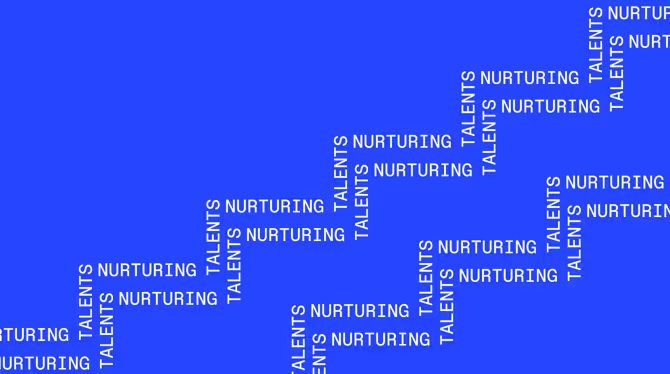Comment améliorer les performances et l'efficacité de l'équipe comme un pro

Discover Workleap Officevibe's benchmark report on 12 key employee engagement metrics

La performance est le cœur de toute équipe performante. C'est le rythme qui fait avancer les choses. Et dans le monde des affaires, il ne s'agit pas seulement de répondre aux attentes, il s'agit de les dépasser. Mais qu'est-ce qui fait qu'une équipe est réellement efficace et productive ? Comment pouvez-vous exploiter la puissance de la gestion des performances pour améliorer les performances de l'équipe et améliorer le niveau de jeu de votre équipe ?
La sagesse intemporelle de Peter Drucker souligne le pouvoir d'une gestion efficace des performances pour façonner l'avenir d'une organisation. En tant qu'expert renommé en théorie de la gestion, les connaissances de Drucker continuent de guider les dirigeants dans leur quête d'une performance et d'une efficacité optimales pour leurs équipes.
Donc, si vous êtes prêt à améliorer l'efficacité de votre équipe, entamons ce voyage ensemble.
{emphasis} Contenu de cet article
- Qu'est-ce qui rend une équipe efficace et productive ?
- Pourquoi la productivité et les performances des équipes sont importantes
- Définition de vos objectifs : définissez le plan d'action pour améliorer l'efficacité de l'équipe
- Préparer le terrain pour l'efficacité : clarifier les objectifs, les rôles et les responsabilités
- Erreurs courantes lors de l'amélioration des performances de l'équipe
- Dix façons d'améliorer les performances et l'efficacité des équipes
- Bâtir ensemble de meilleures équipes (performantes) {emphasis}
Qu'est-ce qui rend une équipe efficace et productive ?
La gestion d'une équipe efficace n'est pas le fruit du hasard : elle est conçue et entretenue avec soin. Les éléments clés suivants constituent les éléments constitutifs d'une équipe performante :
- Une communication claire: Considérez la communication comme le tissu conjonctif qui unit une équipe. Les équipes efficaces s'épanouissent grâce à une communication ouverte et transparente. Écoute active, une compétence aussi cruciale que la parole, garantit que la voix de chacun est entendue et valorisée.
- Objectifs et rôles communs: Comme les instruments d'un orchestre, chaque membre d'une équipe doit avoir un rôle défini. Fixer des objectifs clairs et la définition des rôles et des responsabilités permet de se concentrer, de responsabiliser et de créer un sentiment d'unité entre les membres de l'équipe.
- Collaboration efficace: Le travail d'équipe permet de réaliser le rêve. Souligner l'importance de collaboration dans l'accomplissement de tâches complexes. Des stratégies telles que des sessions de brainstorming régulières et des équipes de projet interfonctionnelles sont les outils qui permettent au moteur collaboratif de fonctionner.
- Apprentissage continu et adaptabilité: Dans l'environnement de travail rapide d'aujourd'hui, rester immobile revient à reculer. Un état d'esprit axé sur la croissance et une culture de apprentissage et amélioration continus sont cruciaux. Encouragez votre équipe à tirer les leçons de ses succès et de ses échecs et à s'adapter à l'évolution des circonstances.
Le fait de favoriser ces éléments stimulera non seulement la productivité de l'équipe, mais créera également une main-d'œuvre résiliente et dynamique, prête à relever tous les défis qui se présenteront à elle.
Pourquoi la productivité et les performances des équipes sont importantes
Au cœur de toute entreprise prospère, vous trouverez des équipes hautement productives qui travaillent en harmonie. Mais quelle est l'importance de la productivité des équipes et pourquoi devriez-vous en faire un point central de votre approche de gestion ?
- Succès commercial: L'efficacité des équipes est la force motrice du succès d'une entreprise. Lorsque votre équipe respecte ou dépasse régulièrement les délais des projets, les clients ont la joie de recevoir des livrables rapides et de haute qualité. Cela se traduit par une plus grande satisfaction des clients, une fidélisation des clients et des recommandations positives par le bouche-à-oreille. Il s'agit d'un puissant effet domino qui commence par les performances de votre équipe.
- Innovation et croissance: Les équipes performantes constituent un terreau fertile pour l'innovation. Ils créent des environnements dans lesquels les nouvelles idées sont encouragées et attendues. Lorsque les membres de l'équipe sont engagés, motivés et efficaces, ils sont plus susceptibles de rechercher des solutions créatives aux défis de manière proactive. Cette culture de l'innovation peut changer la donne en permettant à votre entreprise de s'adapter à l'évolution des conditions du marché, de devancer ses concurrents et d'assurer sa croissance future.
- Engagement et rétention des employés: Une performance d'équipe élevée entraîne de meilleures performances engagement des employés. Les employés engagés éprouvent un fort sentiment d'accomplissement, participent activement à leur travail et font preuve d'un haut niveau de motivation. Ce n'est un secret pour personne que les employés engagés sont plus susceptibles de rester dans une entreprise pendant une période prolongée. Réduit rotation du personnel signifie que votre organisation réalise des économies sur des coûts considérables associés à l'embauche, à l'intégration et à la formation du nouveau personnel. Cela présente également l'avantage de disposer d'une main-d'œuvre plus expérimentée, mieux informée et fiable.
Productivité de l'équipe et les performances sont les pierres angulaires de la réussite et de la longévité des entreprises. En favorisant une culture de haute performance au sein de vos équipes, vous semez essentiellement les graines de l'innovation, de la satisfaction des clients et de l'engagement des employés, ce qui se traduira sans aucun doute par une récolte abondante à long terme.
Définition de vos objectifs : définissez le plan d'action pour améliorer l'efficacité de l'équipe
La définition d'objectifs clairs et réalisables est la première étape pour optimiser l'efficacité de votre équipe. Dans cette section, nous allons explorer le pouvoir de fixer des objectifs qui servent de fil conducteur à la réussite de votre équipe.
Communiquez un objectif clair pour définir une direction et créer un alignement
Une équipe sans but précis, c'est comme un navire sans gouvernail qui dérive sans but. Des objectifs clairs donnent à votre équipe un sens du but et une orientation. Lorsque les membres de l'équipe comprennent ce qu'ils doivent accomplir et pourquoi c'est important, ils s'engagent davantage et s'alignent sur les objectifs de l'organisation.
Prenons l'exemple d'une équipe de gestion de projet travaillant sur un projet critique d'un client. Sans objectifs de projet clairs, l'équipe peut être confrontée à l'indécision et à l'incertitude. Lorsque le chef de projet définit des objectifs précis, tels que la réalisation du projet dans les délais impartis, le respect du budget et le dépassement des attentes du client, chaque membre de l'équipe sait exactement ce qui est attendu. En conséquence, l'équipe est plus concentrée, plus responsable et plus motivée pour atteindre ces objectifs clairs.
Suivez les progrès pour tirer les leçons du passé et réussir à l'avenir
La définition d'objectifs spécifiques et mesurables est une autre pierre angulaire de l'amélioration de l'efficacité de l'équipe. Lorsque vos objectifs sont quantifiables, il devient plus facile de suivre les progrès et d'évaluer les performances. Ces mesures fournissent des données précieuses qui peuvent être utilisées pour identifier les domaines à améliorer, prendre des décisions fondées sur les données et optimiser les processus de votre équipe.
Imaginez une équipe commerciale dont l'objectif est d'augmenter le chiffre d'affaires trimestriel. Si l'objectif est défini de manière vague, l'équipe peut avoir pour objectif général de « stimuler les ventes ». Ce manque de clarté rend quasiment impossible la mesure des progrès. Cependant, si l'objectif est précis, par exemple « augmenter le chiffre d'affaires de 15 % par rapport au trimestre précédent », il fournit une mesure précise des progrès. L'équipe peut analyser ses performances, évaluer si elle est sur la bonne voie et prendre les mesures nécessaires pour atteindre l'objectif spécifique.
Mesurer les progrès ne contribue pas seulement à évaluation des performances mais stimule également la motivation. Lorsque les membres de l'équipe voient leurs progrès et voient à quel point ils sont sur le point d'atteindre leurs objectifs, cela devient un puissant facteur de motivation. Il donne un sentiment d'accomplissement et réaffirme leur engagement à atteindre et à dépasser leurs objectifs.
Préparer le terrain pour l'efficacité : clarifier les objectifs, les rôles et les responsabilités
Les bases d'une équipe performante reposent sur des objectifs clairs et des rôles et responsabilités bien définis. Examinons plus en détail pourquoi ces aspects sont essentiels et comment ils fonctionnent ensemble pour optimiser l'efficacité de l'équipe.
Établir l'alignement avec les objectifs de l'organisation
Pour améliorer l'efficacité de l'équipe, les objectifs doivent être alignés sur les objectifs généraux de l'organisation. Lorsque les objectifs individuels de l'équipe sont en harmonie avec la mission globale de l'entreprise, les membres de l'équipe travaillent ensemble de manière cohérente vers un objectif commun. Cet alignement garantit que les efforts de l'équipe contribuent directement au succès de l'organisation.
Envisagez une équipe de service client chargée d'améliorer la satisfaction des clients. Si les objectifs de l'équipe ne sont pas alignés sur la mission principale de l'entreprise, qui consiste à fournir des expériences client exceptionnelles, ses efforts risquent de ne pas avoir l'impact escompté. Cependant, si chaque membre de l'équipe comprend que son objectif contribue directement au succès de l'organisation en garantissant la fidélité des clients et la fidélisation des clients, il travaille avec plus de passion et d'efficacité.
Définir des rôles clairs : la clé d'une performance d'équipe efficace
Il est tout aussi essentiel de définir les rôles individuels au sein de l'équipe. La clarté des rôles garantit que chacun connaît ses responsabilités et ses tâches spécifiques. Cela réduit la confusion et la duplication des efforts et maximise l'efficacité de l'équipe.
Imaginez une équipe de gestion de projet chargée d'organiser le lancement d'un produit complexe. Chaque membre de l'équipe doit avoir des rôles bien définis, notamment le chef de projet chargé de superviser le calendrier, le spécialiste du marketing chargé des campagnes promotionnelles et l'expert en logistique garantissant la livraison des produits dans les délais. Cette division claire des rôles rationalise les efforts de l'équipe, prévient les conflits et permet un lancement de produit efficace.
Assignation des responsabilités : Habiliter les membres de l'équipe
L'attribution des responsabilités à chaque membre de l'équipe est tout aussi importante. Lorsque les responsabilités sont bien définies, cela favorise la responsabilisation et donne aux membres de l'équipe les moyens de s'approprier leurs tâches. Ils comprennent les attentes qui leur sont imposées et les tâches qu'ils doivent accomplir, ce qui crée un sentiment d'autonomie.
Dans le contexte d'une équipe de création de contenu, chaque membre peut avoir des responsabilités différentes, allant de la recherche et de la rédaction d'articles à l'édition et à la mise en forme. En attribuant clairement les rôles et les responsabilités, chacun sait exactement ce qu'il doit faire. Cela permet de minimiser les malentendus, de garantir l'achèvement des tâches en temps voulu et d'améliorer la qualité du contenu final.
Erreurs courantes lors de l'amélioration des performances de l'équipe
Améliorer les performances de l'équipe n'est pas sans embûches. Les chefs d'équipe peuvent parfois tomber dans des pièges courants qui entravent les progrès et empêchent leurs équipes d'atteindre leur plein potentiel. Dans cette section, nous allons explorer ces faux pas et les raisons pour lesquelles il convient de les éviter.
1. Absence d'objectifs clairs
L'une des erreurs les plus importantes en matière d'amélioration des performances des équipes est de s'engager dans cette aventure sans objectifs clairs et mesurables. Sans objectifs bien définis, il est difficile pour les équipes de savoir vers quoi elles travaillent et comment le succès sera mesuré. Cela peut entraîner un manque de concentration et de motivation.
Imaginez qu'une équipe de football entre sur le terrain sans savoir où se trouvent les poteaux de but ni comment elle va marquer des points. Les objectifs fournissent une orientation et un but. Sans eux, votre équipe ne sait pas quelles cibles spécifiques viser. Cette clarté stimule la motivation et aide chacun à comprendre ce qu'il doit accomplir.
2. Ignorer la dynamique d'équipe
Se concentrer uniquement sur la performance individuelle sans tenir compte de la dynamique d'équipe est une erreur courante. Il est facile de se laisser emporter par l'évaluation des réalisations individuelles et de négliger les aspects essentiels du travail d'équipe, notamment la communication au sein de l'équipe, la collaboration et la synergie.
Le travail d'équipe est au cœur d'une équipe performante. Il ne s'agit pas seulement d'excellence individuelle, mais également de la capacité des membres de l'équipe à travailler ensemble, à communiquer, à collaborer et à tirer parti des forces de chacun. Ignorer ces dynamiques peut mener à une équipe fragmentée, où l'excellence individuelle ne se traduit pas par une réussite collective.
3. Négliger la formation et le développement
Ignorer la nécessité d'une formation et d'un développement continus pour les membres de l'équipe est une erreur majeure. Les équipes qui n'investissent pas dans le développement des compétences peuvent rapidement prendre du retard et avoir du mal à s'adapter à l'évolution des circonstances.
Le paysage commercial est en constante évolution et les équipes doivent s'adapter pour rester compétitives. La formation et le développement continus permettent à votre équipe d'améliorer ses compétences et de suivre le rythme des tendances du secteur. En favorisant leur croissance et leur apprentissage, vous investissez dans leur capacité à relever de nouveaux défis, en les rendant plus efficaces et adaptables.
4. Feedback et communication insuffisants
Le fait de ne pas établir de lignes de communication ouvertes et de fournir des commentaires réguliers peut empêcher l'amélioration de l'équipe. Lorsque les membres de l'équipe ne reçoivent pas de commentaires constructifs et opportuns, ils peuvent continuer à adopter des pratiques ou des comportements sous-optimaux.
La communication est la pierre angulaire d'une équipe performante. Les commentaires constructifs guident les individus vers l'amélioration, et des discussions régulières permettent à tout le monde d'être informé et aligné. En cas de manque de communication et de feedback, les problèmes peuvent s'aggraver et la capacité de l'équipe à apporter des corrections de cap en temps opportun est compromise.
5. Négliger le bien-être des employés
En se concentrant uniquement sur l'amélioration de la productivité et des performances de l'équipe au détriment de bien-être des employés est une erreur néfaste. Les équipes qui travaillent dans des conditions de stress et de pression constantes peuvent être confrontées à l'épuisement professionnel et à une baisse du moral.
Le bien-être des employés est étroitement lié à la performance. Lorsque les membres de l'équipe sont en bonne santé physique et mentale, ils sont plus productifs et engagés. Le fait de négliger leur bien-être peut entraîner un taux de roulement élevé, une baisse de productivité et une augmentation de l'absentéisme.
Être conscient de ces erreurs courantes peut vous aider à les éviter et à améliorer les performances de votre équipe. En fixant des objectifs clairs, en mettant l'accent sur la dynamique d'équipe, en investissant dans la formation et le développement, en maintenant une communication ouverte et en donnant la priorité au bien-être des employés, vous pouvez ouvrir la voie à de nouveaux sommets de performance et d'efficacité pour votre équipe.
Dix façons d'améliorer les performances et l'efficacité des équipes
Pour améliorer les performances et l'efficacité de votre équipe, il est essentiel de disposer d'une boîte à outils contenant des stratégies et des tactiques. Cette section explore dix méthodes très efficaces pour responsabiliser votre équipe et renforcer sa force de collaboration.
1. Rendez les réunions d'équipe plus productives
L'organisation de réunions productives est un art. Que ce soit en personne ou à distance, le partage des agendas à l'avance, la définition d'objectifs clairs dès le départ et la conclusion par des actions peuvent améliorer considérablement l'efficacité de l'équipe. Quand vos réunions d'équipe ont lieu bien structuré et axé sur les résultats, ils deviennent des lieux de rencontre précieux qui favorisent le progrès.
Pour rendre les réunions encore plus efficaces, vous pouvez établir des règles de base, telles que les limiter dans le temps et encourager la participation active. Envisagez de faire participer votre équipe à la planification des séances de brainstorming, afin que les réunions soient collaboratives et constructives. Partagez les notes de réunion par la suite pour documenter les progrès et les engagements, créant ainsi un sentiment de responsabilité. Les réunions productives permettent non seulement de gagner du temps, mais aussi de créer une culture d'efficacité au sein de l'équipe.
2. Renseignez-vous régulièrement auprès de vos employés
Réunions individuelles sont de puissants outils pour comprendre les membres de votre équipe et leurs progrès. Les contrôles réguliers témoignent de votre engagement en faveur de leur développement et de leur bien-être. Lorsque les employés se sentent écoutés et valorisés, ils sont plus engagés et motivés. Ces réunions sont la pierre angulaire de gestion continue des performances, où vous et les membres de votre équipe discutez des réalisations, des défis et des objectifs futurs.
Le structure d'une réunion individuelle crée une plateforme pour des conversations ouvertes et honnêtes qui vont au-delà des tâches quotidiennes. C'est l'occasion de se pencher sur des objectifs de carrière à long terme, d'offrir des conseils et de renforcer les relations de travail. En communiquant régulièrement avec les membres de votre équipe, vous favorisez non seulement leur croissance, mais vous recueillez également des informations qui peuvent éclairer vos décisions de direction.
{emphasis} Laissez-vous inspirer par notre 50 questions de réunion utiles pour orienter les conversations dans la bonne direction et les partager depuis notre conseils sur les meilleures pratiques pour les réunions individuelles. {souligner}
3. Fixez collectivement les objectifs de l'équipe
Les objectifs donnent une idée du but et de l'orientation. Lorsque vous impliquez votre équipe dans la définition des objectifs, cela favorise un sentiment partagé d'appartenance et de responsabilité. Ce processus collectif d'établissement d'objectifs aligne les objectifs individuels sur la mission globale de l'équipe, en mettant l'accent sur l'interdépendance des membres de l'équipe.
Il y a un processus étape par étape à une excellente définition d'objectifs. Commencez par partager les objectifs généraux de l'organisation avec votre équipe. Ensuite, encouragez votre équipe à réfléchir et à discuter de ses priorités. Cette discussion peut générer des idées intéressantes et parvenir à un consensus autour des objectifs les plus importants. Assurez-vous que ces objectifs sont spécifiques, mesurables, réalisables, pertinents et limités dans le temps (SMART).
Familiarisez-vous avec les différents types d'objectifs, et assurez-vous qu'ils sont à la fois appropriés et suffisamment stimulants pour vous inciter à progresser. Passez régulièrement en revue et mettez à jour ces objectifs d'équipe pour vous assurer qu'ils restent pertinents et motivants.
4. Encouragez les commentaires entre pairs
Le feedback ne doit pas venir uniquement du haut vers le bas, il doit s'agir d'un échange multidirectionnel. Encourager les membres de l'équipe à fournir des commentaires à leurs pairs crée une culture d'amélioration continue. Les commentaires des pairs peuvent être particulièrement utiles car ils proviennent de personnes qui travaillent en étroite collaboration et comprennent les défis quotidiens.
Pour promouvoir un boucle de rétroaction par les pairs, vous pouvez mettre en place un programme de reconnaissance par les pairs dans le cadre duquel les membres de l'équipe reconnaissent publiquement les contributions des uns et des autres. Assurez-vous que les commentaires restent constructifs, respectueux et axés sur les objectifs. Encouragez les membres de votre équipe à formuler des commentaires précis, en mettant l'accent sur les points forts et les points à améliorer.
En favorisant un environnement riche en commentaires, vous améliorez la capacité de l'équipe à apprendre et à se développer en collaboration.
5. Favoriser la reconnaissance et l'appréciation au sein de l'équipe
Reconnaître et apprécier les contributions des membres de votre équipe est un puissant facteur de motivation. Reconnaître publiquement et régulièrement leurs efforts et leurs réalisations peut remonter le moral et maintenir une atmosphère positive. Reconnaissance favorise le sentiment d'appartenance, en faisant en sorte que les membres de l'équipe se sentent valorisés et appréciés.
À améliorer la reconnaissance sur le lieu de travail, vous pouvez introduire un système de reconnaissance par les pairs. Encouragez les membres de l'équipe à reconnaître ouvertement les contributions de chacun lors des réunions ou via des plateformes numériques. Soulignez des exemples spécifiques de travail exceptionnel et expliquez comment ils ont contribué au succès de l'équipe. Célébrez les réussites, qu'il s'agisse de jalons importants ou de petites victoires.
La reconnaissance n'a pas besoin d'être élaborée : elle peut être aussi simple qu'un coup de gueule lors d'une réunion d'équipe. En créant une culture de reconnaissance, vous renforcez la cohésion et la motivation de l'équipe.
6. Renforcer la dynamique d'équipe
La dynamique d'équipe joue un rôle essentiel dans la détermination de l'efficacité d'une équipe. Instaurer la confiance, améliorer la communication et favoriser la collaboration sont des éléments essentiels du bon fonctionnement d'une équipe. Ces facteurs garantissent la cohésion de votre équipe, chaque membre apportant ses forces uniques.
Commencez par investir dans activités de team building qui créent la confiance et la camaraderie entre les membres de l'équipe. Il peut s'agir de simples brise-glaces ou d'événements hors site plus élaborés. Encouragez une communication ouverte et honnête, dans laquelle les membres de l'équipe se sentent à l'aise pour partager leurs pensées et leurs idées. Traitez et résolvez rapidement les conflits afin de maintenir un environnement de travail sain. En développant et en maintenant une dynamique d'équipe solide, vous créez un contexte favorable à la productivité et à la collaboration de l'équipe.
Le maintien d'une dynamique d'équipe solide dans les environnements distants exige des stratégies uniques et une importance accrue à la communication. Cependant, il existe meilleures pratiques pour les équipes distribuées spécialement conçu pour les gestionnaires à distance.
{emphasis} Jetez un œil à notre cadre pour maîtriser la dynamique d'équipe — un guide gratuit est inclus ! {souligner}
7. Surveillez et mesurez les performances de l'équipe pour augmenter la productivité
Pour améliorer les performances, il est essentiel de suivre et de mesurer régulièrement les performances de votre équipe. Cette approche basée sur les données fournit des informations sur les domaines qui nécessitent une attention particulière, vous permettant de prendre des décisions et des améliorations en connaissance de cause.
Mettre en œuvre indicateurs de performance clés (KPI) et systèmes de suivi des performances pour mesurer les progrès de l'équipe. Identifiez les indicateurs critiques qui correspondent aux objectifs de l'équipe, qu'ils soient basés sur des projets ou liés à des objectifs stratégiques plus généraux. Développez un système de reporting qui assure la transparence des performances de l'équipe, afin que chaque membre de l'équipe puisse accéder aux données nécessaires. En surveillant et en mesurant les performances, vous vous assurez que votre équipe est sur la bonne voie et travaille en permanence à l'amélioration.
8. Donnez aux employés les moyens de contrôler eux-mêmes leurs performances
L'autosurveillance encourage les membres de l'équipe à prendre en main leurs performances et leur développement professionnel. Il permet aux individus d'évaluer leur travail, de fixer leurs objectifs et de procéder aux ajustements nécessaires. Lorsque les employés s'auto-contrôlent, ils deviennent plus responsables de leurs performances, ce qui peut contribuer à améliorer l'efficacité de l'équipe.
Encouragez les membres de votre équipe à établir leurs indicateurs de performance clés et leurs jalons. Fournissez-leur des outils et des ressources pour suivre leurs progrès, tels que des tableaux de bord de performance ou des modèles d'auto-évaluation. En donnant aux employés les moyens de contrôler eux-mêmes leurs performances, vous leur inculquez le sens des responsabilités et vous les incitez à l'amélioration continue.
9. Investissez dans des outils de gestion de projet
Les outils de gestion de projet sont essentiels pour maintenir l'organisation et l'efficacité de votre équipe. Ces outils permettent aux équipes de collaborer, de coordonner les tâches et de suivre efficacement l'avancement des projets. Ils fournissent une plateforme centralisée où les membres de l'équipe peuvent accéder aux informations, communiquer et suivre l'état des tâches.
Investissez dans un outil de gestion de projet adapté aux besoins spécifiques de votre équipe. Ces outils comportent généralement des fonctionnalités d'attribution de tâches, de suivi des délais, de partage de documents et de suivi des progrès. Ils facilitent une communication claire en centralisant toutes les informations relatives au projet. Le bon outil de gestion de projet rationalise les flux de travail et garantit que tout le monde est sur la même longueur d'onde.
10. Suivez les niveaux d'engagement
L'engagement est un facteur critique dans les performances de votre équipe. Les équipes engagées ont tendance à être plus motivées et productives. Il est essentiel de mesurer les niveaux d'engagement de votre équipe pour garantir qu'elle donne le meilleur d'elle-même. Comprendre ce que votre équipe pense de son travail et résoudre les problèmes éventuels peut avoir un impact significatif sur les performances.
Suivez l'engagement au moyen de sondages réguliers ou de canaux de feedback pour évaluer la satisfaction et le bien-être de votre équipe. En recueillant des informations sur leurs expériences, vous pouvez identifier les domaines qui peuvent nécessiter des améliorations ou un soutien supplémentaire. Créez un processus de feedback transparent et anonyme qui encourage votre équipe à partager ses réflexions ouvertement. Le fait de prendre des mesures en fonction de ces commentaires démontre votre engagement envers leur bien-être et leur satisfaction au travail. En agissant activement mesurer et gérer l'engagement, vous êtes mieux outillé pour maintenir une équipe performante.
Bâtir ensemble de meilleures équipes (plus performantes)
En tant que chef d'équipe, vous avez la capacité extraordinaire de transformer un groupe de personnes en une équipe harmonieuse et performante. Bien que l'amélioration des performances globales de l'équipe puisse sembler difficile, elle est tout à fait possible et très gratifiante.
En adoptant les méthodes et techniques décrites dans cet article, vous pouvez créer un environnement de travail où l'excellence s'épanouit.
Workleap Officevibe : le secret d'un chef d'équipe en matière de gestion des performances
Nous comprenons la dynamique complexe de la performance et de l'efficacité des équipes, et notre gamme de ressources et d'outils peut vous aider dans cette démarche. Que vous recherchiez des conseils sur la gestion continue des performances, des ateliers visant à fixer des objectifs en équipe ou des systèmes de feedback, nous avons ce qu'il vous faut. Notre Boîte à outils RH regorge de ressources conçues pour vous donner les moyens d'agir, à vous et à votre équipe.
Give HR and managers the clarity, confidence, and connection to lead better every day.






%202.avif)





